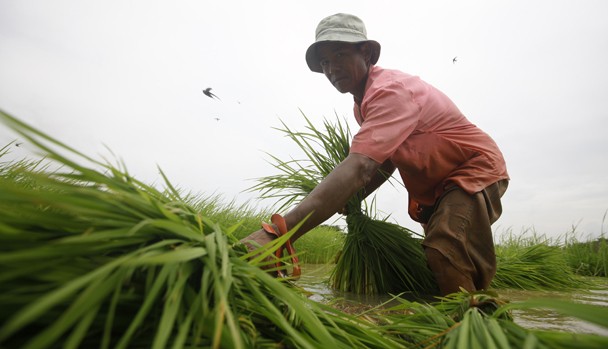RANGOON — Farmers in Pegu Division and parts of the Irrawaddy Delta are being forced to sell their rice crops at low prices to pay off high-interest loans incurred as a result of flooding during last year’s growing season, according to sources in the area known as Burma’s rice bowl.
“One hundred baskets of paddy sell for 400,000 kyat [US $460] in the market, but we have to sell ours for 300,000 to 350,000 kyat to repay our debt,” said Sein Than, a farmer with 15 acres of rice fields in eastern Pegu Division.
Many farmers are now facing especially heavy debt loads due to last year’s heavy rains, which flooded fields and destroyed crops. In an effort to recover from the loss, some farmers attempted to replant late in the season with money borrowed at high interest rates from private lenders.
However, an official from the Myanmar Rice Federation (MRF) said that the area affected by the flooding was relatively small, meaning that last year’s weather would not have a serious impact on overall rice yields for the region or on rice prices nationwide.
MRF General Secretary Ye Minn Aung also said that efforts are being made to provide farmers with better access to credit through a system that would see a greater consolidation of rice stockpiles.
“The MRF plans to set up warehouses in every township in paddy-growing areas where farmers can keep their paddy. Farmers who use the warehouses will be able to receive money in advance from the Myanmar Agricultural Development Bank,” he said.
Another problem facing farmers, however, is a fall in rice prices on the international market. To remedy this issue, the Myanmar Farmers Association (MFA) said that the government would buy paddy from farmers at a fixed price so that they wouldn’t have to sell at low prices.
“Around 500 farmers from the delta area were planning to protest against the low prices earlier this month, but we asked them what they wanted, and they said they want the government to buy their paddy at good price so they would have enough money to grow pulses,” said an MFA spokesperson.
After the discussions, the farmers agreed to call off the protests when the MRF said it would buy rice in cooperation with the government, the spokesman added.

















